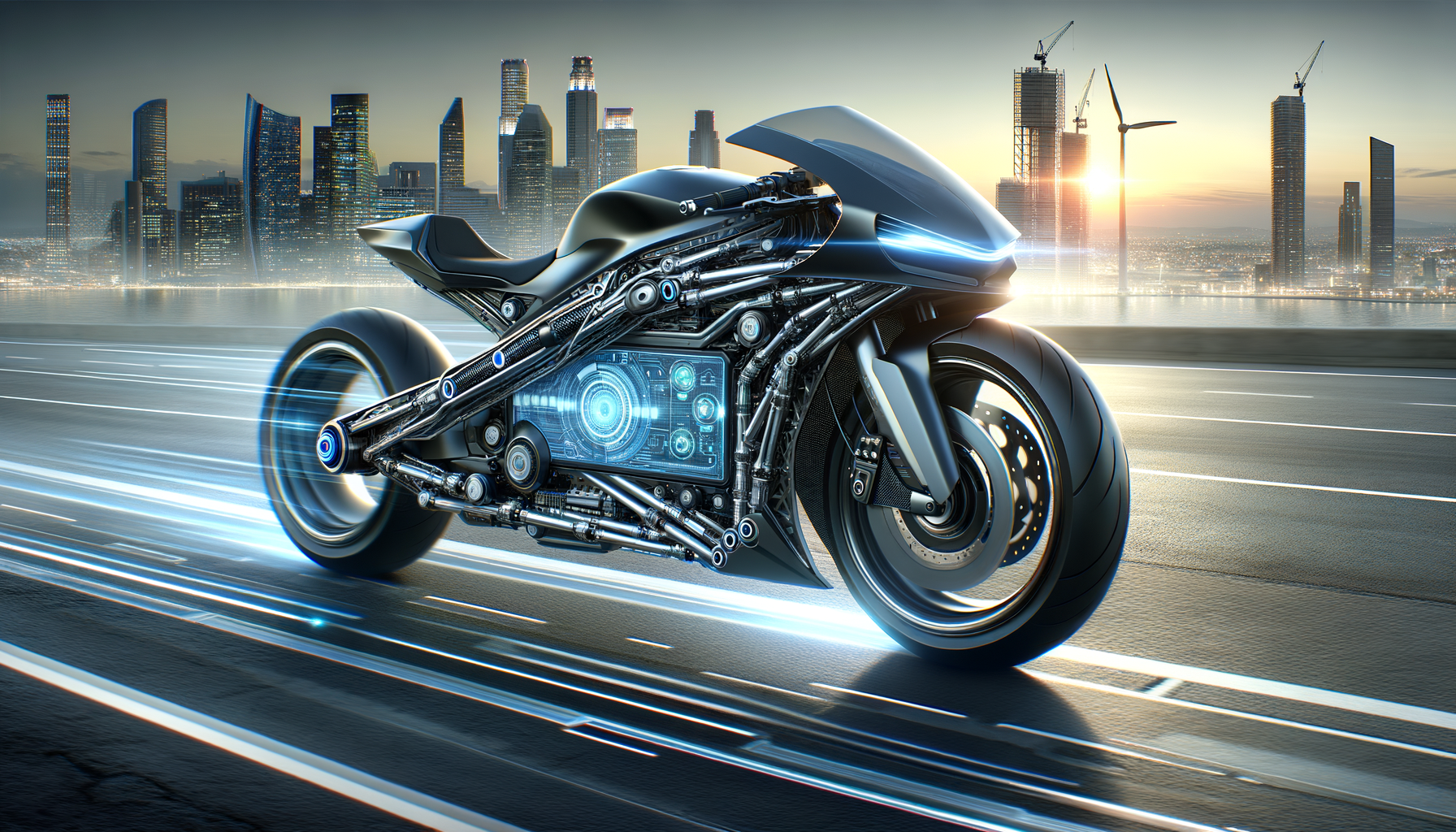Introduction to Smart Motorbikes
The world of motorcycles is experiencing a paradigm shift with the integration of artificial intelligence (AI). This transformation is not merely about adding technology for the sake of it; instead, it’s about enhancing the riding experience while ensuring safety and efficiency. AI in motorbikes is redefining how riders interact with their machines, offering real-time feedback and assistive controls that aim to make riding smoother and safer without taking control away from the rider.
With the rapid advancement of AI technologies, motorbikes are becoming smarter, more intuitive, and increasingly capable of adapting to various riding conditions. This article delves into the various aspects of AI-enhanced motorbikes, exploring how these innovations are shaping the future of two-wheeled transportation.
AI-Powered Safety Features
One of the most significant contributions of AI to motorbikes is the enhancement of safety features. AI systems can process vast amounts of data from sensors placed around the bike to provide real-time feedback to the rider. This includes monitoring road conditions, detecting potential hazards, and even predicting the behavior of other vehicles on the road.
For instance, AI can enable advanced collision detection systems that alert the rider to potential dangers, allowing them to take preventive measures. Some systems are designed to automatically adjust the bike’s speed or apply brakes in emergencies, significantly reducing the risk of accidents. These features are particularly beneficial in urban environments where traffic is dense and unpredictable.
Furthermore, AI can assist in maintaining optimal tire pressure and engine performance, ensuring that the bike operates efficiently and safely. By continuously analyzing the bike’s condition, AI helps in preemptive maintenance, reducing the likelihood of breakdowns and extending the lifespan of the vehicle.
Enhancing Rider Experience with AI
Beyond safety, AI is revolutionizing the rider experience by offering personalized and adaptive features. Smart motorbikes equipped with AI can learn from the rider’s habits and preferences, adjusting various settings to enhance comfort and performance. This includes optimizing suspension settings, throttle response, and even the seating position based on the rider’s style and the terrain.
AI-powered navigation systems are another significant advancement, providing riders with real-time traffic updates and route optimization. These systems can suggest alternative routes to avoid congestion, ensuring a smoother and more enjoyable ride. Additionally, AI can integrate with wearable technology, allowing riders to receive notifications and control certain bike functions through voice commands, minimizing distractions and enhancing focus on the road.
Moreover, AI can facilitate a more connected experience by integrating with smartphones and other devices, enabling seamless communication and entertainment options for the rider. This interconnected ecosystem enhances the overall journey, making each ride more engaging and enjoyable.
The Role of AI in Sustainable Riding
As the world moves towards sustainable transportation solutions, AI plays a crucial role in making motorbikes more environmentally friendly. AI systems can optimize fuel consumption by analyzing riding patterns and suggesting eco-friendly practices. This not only helps in reducing the carbon footprint but also contributes to significant cost savings for the rider.
Electric motorbikes, in particular, benefit from AI through efficient battery management systems. AI can monitor battery health and optimize charging cycles, ensuring maximum efficiency and longevity. Additionally, AI can assist in energy recovery systems, harnessing power from braking and other sources to extend the bike’s range.
By promoting sustainable riding practices, AI is helping to create a cleaner and greener future for motorbike enthusiasts. This aligns with global efforts to reduce emissions and combat climate change, making AI an integral part of the transition to sustainable transportation.
Future Prospects of AI in Motorbikes
The integration of AI in motorbikes is still in its early stages, but the future holds immense potential for further advancements. As AI technology continues to evolve, we can expect even more sophisticated features that enhance safety, performance, and sustainability. For instance, the development of fully autonomous motorbikes, while still a distant reality, is a possibility that could revolutionize the industry.
AI could also facilitate more advanced rider training programs, using virtual reality and simulation technologies to provide immersive learning experiences. This could help riders develop skills and confidence in a controlled environment, ultimately improving safety on the roads.
Furthermore, as AI becomes more accessible and affordable, we can anticipate a broader adoption of smart motorbikes across various demographics. This democratization of technology will enable more riders to experience the benefits of AI, making motorbiking safer, more efficient, and more enjoyable for everyone.




Leave a Reply